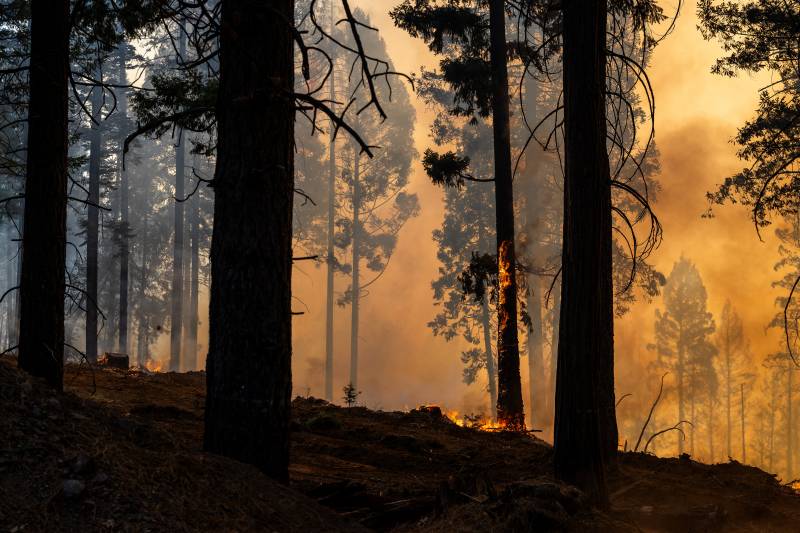Here are the morning’s top stories on Monday, March 10, 2025…
- When Sacramento and Washington, D .C. are at odds, California has some ability to insulate itself. It can partially set its own agenda through state laws, agencies, and funding. But that’s not true in about half of the state because half of it is owned by the U.S. government in the form of public lands. In those parts of the state, federal policies apply.
- Did you know, if your car gets towed in California and you don’t claim it, the DMV can pocket any profits after it’s sold? Even though owners are entitled to this money, the DMV doesn’t have to notify them, and the agency has brought in millions off of these kinds of sales. That’s according to a new investigation from our partner, CalMatters.
Federal Policy Turmoil Threatens California’s Wildfire Prevention Efforts
When the politics of Sacramento oppose the politics of Washington, California is able to insulate itself. The state’s environmental laws, agencies and funding streams allow it — to a certain extent — to set its own agenda. For example, California can set its own clean car targets, clean water standards and goals for prescribed burning.
In — or more literally on — about half of the state, that’s not the case because the federal government owns it. Here, on this land, federal policies apply. The U.S. Department of Agriculture’s Forest Service is the biggest landowner, holding 43% of all federal land within California’s borders. Next is the Bureau of Land Management, with 32%. The National Park Service controls 16%. The state of California, comparatively, holds just 3% of the state’s landmass, so those who care about California’s public lands and about limiting explosive wildfires also care about federal policy.
And yet policy on federal public lands is currently in chaos. Firings, funding freezes, emails that demand employees list five things they accomplished during the week and high-profile resignations have caused upheaval and bewilderment for the people entrusted to care for public lands. Current and former federal and state employees told KQED they were concerned about delayed fire safety projects, canceled training for fire responders, slow response times to fires, and depleted ranks of firefighters and firefighting support staff. The trickle-down effects could mean communities are left at a higher fire risk of wildfire while public lands are neglected and ill-managed.
The DMV Makes Millions From Auctioned Cars, And Doesn’t Tell The Owners
After a Lamborghini Murciélago Roadster got towed in 2023, no one claimed it. The iconic sports car sat at a Torrance tow yard for five months, long enough that the towing company had the right to sell it. The sale allowed the company to recoup its costs for the tow, storage and lien sale, $11,332. But there was plenty left over: $99,668, which went to the California Department of Motor Vehicles. The owner has to claim the funds by 2027, when the money is permanently in the DMV’s coffers.

